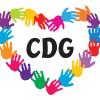NEW YORK (September 23, 2014) — David Goldstein, PhD, will join
Columbia University as professor of genetics and development in the College of Physicians and Surgeons and director of a new Institute for Genomic Medicine in partnership with NewYork-Presbyterian, effective January 1, 2015. Dr. Goldstein will be responsible for building a program that comprehensively integrates genetics and genomics into research, patient care, and education at Columbia University Medical Center (CUMC) and NewYork-Presbyterian and that develops programs to prepare students for careers in the expanding field of genomic and personalized medicine.

David Goldstein, PhD, will join Columbia University as professor of genetics and development and director of a new Institute of Genomic Medicine. (Image Credit: Duke Photography)
Dr. Goldstein’s role includes serving as an adviser to Columbia University President Lee C. Bollinger and Executive Vice President for Health and Biomedical Sciences Lee Goldman, MD, on the genetic and genomic components of Columbia’s university-wide initiative in precision or “personalized” medicine, which was announced in February.
“Having a pioneering researcher like David Goldstein join us marks a crucial next step in our initiative to be at the forefront of genomics, data science, and the core science and engineering disciplines essential to this emerging field of truly humanistic medicine,” said President Bollinger. “The potential for progress in this broad subject encompasses not only new cures for disease, but also virtually every part of the University, including areas that explore fundamental issues of human self-understanding, as well as the legal, policy, and economic implications of revolutionary changes in knowledge and practice.”
Dr. Goldstein’s research has focused on identifying the relationship between human genetic variations and diseases such as epilepsy, hepatitis C, and schizophrenia, as well as the response of these diseases to pharmacologic treatments. In addition to his leadership of the Institute for Genomic Medicine at CUMC, he will have a faculty appointment at the New York Genome Center, as well as one in neurology at Columbia’s College of Physicians and Surgeons.
“David Goldstein has shown himself to be both an innovative scientist and a visionary leader in genetic, genomic, and personalized medicine,” said Dr. Goldman, who is also the Harold and Margaret Hatch Professor of the University and dean of the Faculties of Health Sciences and Medicine at CUMC. “Working with our partners across Columbia and at New York-Presbyterian, Dr. Goldstein will help us establish a fully integrated genetics and genomics research environment to maximize the scientific possibilities and apply them to the frontiers of patient care and public health.”
“Personalized medicine and targeted therapies represent the future of patient-centered health care,” said Steven J. Corwin, MD, CEO, NewYork-Presbyterian. “Dr. Goldstein’s expertise in genetics will help us not only to tailor individualized treatments for patients, but also to identify diseases before they develop. His work will have a transformative impact on patient care at NewYork-Presbyterian.”
Dr. Goldstein comes to Columbia from Duke University, where he has been director of the Center for Human Genome Variation and the Richard and Pat Johnson Distinguished University Professor, with appointments in the departments of molecular genetics & microbiology and biology. He joined Duke in 2005 after six years at University College London, which named him Honorary Professor in 2007. He received his PhD in biological sciences from Stanford University in 1994.
“The vision of Columbia University and NYP to create a truly integrated environment for research, clinical application, and student instruction is exactly the right vision,” said Dr. Goldstein. “Human genomics is creating breathtaking new opportunities to better understand the biology of disease and to provide more effective and more accurately targeted therapies. Capitalizing on these opportunities and ensuring that clinical applications adhere to the highest-possible scientific standards requires close collaborations among researchers, the clinical community, and patients and their families. I am thrilled to be joining Columbia University at this pivotal time in my field, and I am honored to participate in Columbia’s university-wide initiative in precision medicine.”
Dr. Goldstein was elected a fellow of the American Association for the Advancement of Science in 2013 and received one of the first seven nationally awarded Royal Society/Wolfson research merit awards in the United Kingdom for his work in human population genetics. Also in 2013, Dr. Goldstein chaired the Gordon Research Conference in Human Genetics. He serves on the Advisory Council at NIH’s National Institute of Neurological Disorders and Stroke.
The task force President Bollinger announced in February is co-chaired by Dr. Goldman and Columbia Provost John Coatsworth, PhD.
About:
Columbia University Medical Center provides international leadership in basic, preclinical, and clinical research; medical and health sciences education; and patient care. The medical center trains future leaders and includes the dedicated work of many physicians, scientists, public health professionals, dentists, and nurses at the College of Physicians and Surgeons, the Mailman School of Public Health, the College of Dental Medicine, the School of Nursing, the biomedical departments of the Graduate School of Arts and Sciences, and allied research centers and institutions. Columbia University Medical Center is home to the largest medical research enterprise in New York City and State and one of the largest faculty medical practices in the Northeast. For more information, visit
cumc.columbia.edu or
columbiadoctors.org.
NewYork-Presbyterian Hospital/Columbia University Medical Center, located in New York City, is one of the leading academic medical centers in the world, comprising the teaching hospital NewYork-Presbyterian and its academic partner, Columbia University College of Physicians and Surgeons. NewYork-Presbyterian/Columbia provides state-of-the-art inpatient, ambulatory and preventive care in all areas of medicine, and is committed to excellence in patient care, research, education and community service. NewYork-Presbyterian Hospital also comprises NewYork-Presbyterian Hospital/Weill Cornell Medical Center, NewYork-Presbyterian/Morgan Stanley Children’s Hospital, NewYork-Presbyterian Hospital/Westchester Division, NewYork-Presbyterian/The Allen Hospital and NewYork-Presbyterian/Lower Manhattan Hospital. The hospital is also closely affiliated with NewYork-Presbyterian/Lawrence Hospital in Bronxville. NewYork-Presbyterian is the #1 hospital in the New York metropolitan area, according to
U.S. News & World Report, and consistently named to the magazine’s Honor Roll of best hospitals in the nation. For more information, visit
www.nyp.org.















